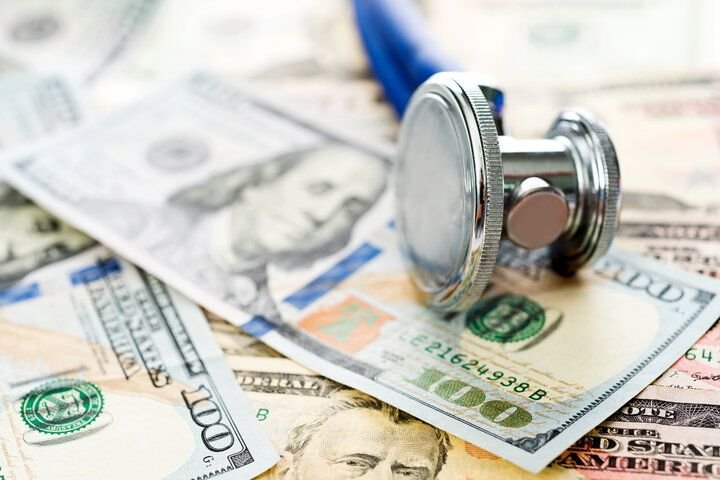According to one study by https://bluewatercredit.com, 41% of Americans who are in working age are paying off medical debt or are struggling with it. The cost of medical treatment is so high that medical emergencies are the highest on the list of reasons why people go bankrupt. According to estimates by medical billing advocates, some 90% of the audited bills contain gross overcharges and only people in the know are able to challenge the service providers and knock them down by as much as 95% leaving the rest to the mercy of debt collectors and worse. Even though you may be young and healthy, it is quite possible you will encounter a medical emergency that will leave you staring at bills with astronomical figures. While it is obvious that you need to pay for medical attention, here is what you can do when you are faced with bills of very large amounts:
Ensure that the bills are accurate: Hospitals and clinics are extremely busy places and often, billing clerks have to work under tremendous overload, which makes bills prone to errors. You could be looking at services that have been billed but never received by you or charges for medications that were not taken by you. Even if the entries are right, there could be mistakes in the quantities and the rates that could be penalizing you needlessly. You can be billed for the entire day even if you have been discharged in the morning. If you notice any errors, bring them to the attention of the billing desk immediately and have them rectified.
Do not ignore pending bills: Even if you have received a really big bill and do not have the resources to pay it, it is important not to ignore it because that will not make the problem disappear. Instead, if you keep it unpaid for a long time, it will be turned over to collections and start damaging your credit score. Additionally, you will start getting chased by debt collectors at home and at your workplace making it extremely annoying and embarrassing.

Avoid using credit cards to pay your medical expenses: Credit cards may seem to be a convenient option for making even large medical charges because you can always pay the minimum amount due every month. However, people forget that a very steep APR will be applicable on your card balance and you could be every easily spending a huge amount over a few years in repaying the debt. In the meantime, if you miss on making a payment, you will get slapped with a high late payment fee and incur some damage to your credit score. If you have a succession of medical bills, you could very easily end up in a debt trap from which it can be very difficult to escape without the assistance of a professional debt settlement company with good ratings. You can consider requesting the clinic or the hospital for a medical credit card that can give you a long interest-free period during which, it will be possible to pay off the bill in full. Alternatively, if you have a good credit score, you may be able to get a zero-percent balance transfer card with a long promo period, however, in both cases, you should find out what the applicable fees are.
Ask for a full payment discount: If you have the money to pay off the bill in full, ask the hospital to give you a discount. It is common to get a 10% off; however, experts suggest that with some hard bargaining you may be able to get a substantially heftier reduction. To make your case stronger, you can find out what other hospitals in the area are charging for the same procedures and use it as a bargaining chip.
Work out a payment plan: If the bill amount is too high to settle outright, ask if the hospital has a payment plan with which, you can pay off a portion of the bill amount every month. If you do not find the monthly amount affordable, you can negotiate to bring it down. Depending on the hospital, you may be even able to get an interest-free payment plan.

Request financial assistance: While many people may not be aware, plenty of hospitals do have arrangements for extending financial assistance to patients who cannot afford to make the payments of their medical bills. While there are different procedures followed by the hospitals, most of them will require you to first apply for Medicaid and take up your application only if you are rejected. The process can be arduous and require you to satisfy the hospital of your genuine inability to pay by producing documents like tax returns, bank statements, paychecks, etc.
Apply for a personal loan: If you have not qualified for financial assistance, you can try to get a personal loan. The rate of interest that you will get depends on how good your credit score is; however, you can be sure that it will be less than the typical credit card APR. Try not to make overextend the repayment period because you will end up needlessly paying more interest. The rates of interest differ quite a lot between lenders so be sure to shop around before signing on the dotted line.

Deal with the debt collection agencies: If the bills have been turned over to a collection agency due to nonpayment, you will be contacted by the collection agents. While they cannot harass you at home or at work or threaten you, you need to cooperate with them. After verifying that the debt is yours and the figure is accurate, you should try to negotiate a settlement for as less an amount as you can.
Conclusion
Medical expenses can be extremely stressful and add significantly to the woes of the person recovering from a health crisis. While it can be very tempting to ignore medical bills because there are no immediate consequences, you can be sure that they will be turned over to collection agencies that can make your life miserable. On top of everything, the collection account would have damaged your credit score and you would have to live with it for as long as seven years unless the account is settled earlier.





